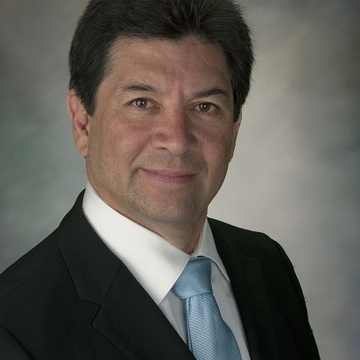Preparing for Disaster: UNM Hospital Participates in Region-Wide Emergency Training

Community of Care
UNM To Expand Access to Mental Health and Substance Abuse Services
University of New Mexico mental health and addiction treatment providers are teaming up with new partners to build a comprehensive continuum-of-care model that they hope will better meet the needs of local residents.
A centerpiece of the new service model entails locating UNM providers onsite at the Metropolitan Assessment and Treatment Services (MATS) center, operated by the Bernalillo County Department of Behavioral Health Services, says Mauricio Tohen, MD, DrPH, MBA, chair of UNM's Department of Psychiatry & Behavioral Sciences.
The move would enable MATS to enhance its existing substance abuse treatment services with general mental health care, Tohen says.
"We're going to be creating a system that has stepdown services, where medical and psychiatric diagnoses and management are taken care of," Tohen says.
The new services became possible after the Turquoise Lodge Hospital, which provides inpatient substance abuse detox treatment, recently relocated from the MATS campus to a new location, Tohen says.
Future plans also call for creating a 16-bed residential unit at MATS that would function as the starting point for development of a crisis stabilization center.
"We will be providing medical and nursing staff at MATS," adds Rodney F. McNease, executive director of governmental affairs for UNM Hospitals, who oversees operational collaborations at the Psychiatric Center. "We'll be working with Bernalillo County to develop an expanded crisis continuum of care focused on program development. They're very receptive to expanding their capabilities in mental health."
Meanwhile, a plan is also underway to increase the number of beds to provide emergency services and urgent care at the Psychiatric Center itself. This plan will included expanded capabilities for both adult and pediatric patients.
"It will actually double our capacity to treat patients and provide care for both children and adults," Tohen says. "We are also renovating our inpatient unit to take care of acute patients while providing a better patient experience."
The department is also developing a forensic behavioral care service in close collaboration with the UNM School of Law and the Albuquerque Police Department. It will provide expertise and consultation to UNM providers and to the community.
In addition, UNMH community support workers based at the Bernalillo County Metropolitan Detention Center evaluate and develop treatment plans for those who are about to be released. UNM has also collaborated with Bernalillo County to provide staffing and support at the new Resource Reentry Center in downtown Albuquerque that acts as a transition point for people following their release from MDC.
"The goal is to prevent them from being re-incarcerated," Tohen says. "We're working in partnership with the whole health community."
The department's reach extends beyond Bernalillo County. Faculty members will enable the provision of 24/7 emergency behavioral health services at UNM Sandoval Regional Medical Center. And, with the help of funding from the Sandoval County mill levy, department faculty will staff outpatient behavioral health services and a training center at the UNM Health Sciences Rio Rancho campus.
Tohen says the department continues to receive major grant funding for research in mental health and addictions.
"In terms of training, we continue to be committed to our mission, which is to train mental health providers who will remain in the state," he says. "We are expanding our training in rural psychiatry, and we have developed a national reputation in this area."